Last Updated on August 5, 2021

Welcome to The Best Movie You NEVER Saw, a column dedicated to examining films that have flown under the radar or gained traction throughout the years, earning them a place as a cult classic or underrated gem that was either before it’s time and/or has aged like a fine wine.
This week we’ll be examining director Gore Verbinski’s THE WEATHER MAN starring Nicolas Cage

THE STORY:
Dave Spritz is a local weatherman in his hometown of Chicago, where his career is going well while his personal life — his relationship with his perfectionist writer father, his neurotic ex-wife, and his now-separated children — is spiraling downward. Despite being both loathed and loved by the local masses, Dave is a guy who doesn't seem to have it all together, and in this film, he begins to feel it. An attractive job offer presents Dave with a major question: to pursue his career in New York City, or to remain at home with his family.
THE PLAYERS:
Gore Verbinski, best known for the PIRATES OF THE CARIBBEAN flicks and this summer’s unfortunate THE LONE RANGER, helmed THE WEATHER MAN, which is a much smaller and deep film than any of those combined. The pic was written by Steve Conrad (BECOMING ERNEST HEMINGWAY) and stars Nicolas Cage as Dave Spritz, Michael Caine as his stern father, Hope Davis as his nagging wife, and a very young-looking Nicholas Hoult as Cage’s son. The music is composed by the great Hans Zimmer, which has a catchy, quirky theme and serves as one of his more underappreciated works, much like the film itself.

THE HISTORY:
The inspiration for THE WEATHER MAN came to screenwriter Steven Conrad when he witnessed his local weatherman get pelted by a milkshake, which made him ponder how a local weatherman would invite such scorn over the weather. Conrad pulled this element into his personal relationship with his father, tying in the theme of living in the shadow of those we look up to.
Verbinski read the script and related to it similarly, as his father is an actual nuclear physicist, and took on the project. The studio wanted the film to be shot in Canada for the tax breaks, but Verbinski was adament about shooting in Chicago (which is where the script takes place), as the setting is every bit as much a character in the film as the actors.

The film was shot in 2005 during late winter on location in Chicago (where they actually had to use artificial snow) and debuted theatrically on October 28, 2005. The film received middling reviews, standing at 58 percent on Rotten Tomatoes. It grossed just $12.4 million domestically (from a $22 million budget) and was considered a flop.
Since that time, the film has found a new appreciation by moviegoers, particularly for its relatable undertones of family, divorce, ambition, and introspective themes, ripe with comedy and drama.

WHY IT’S GREAT:
It’s not at all odd that THE WEATHER MAN is split amongst critics. It’s not a film that is meant to be universally loved, mostly because it tackles real-life issues with cringe-worthy realism, down to the offbeat (but dead-on) dialogue to the complex situations that characters find themselves in. It’s an uplifting film, but not in the traditional sense. It’s a sour-with-the-sweet reflection on life, particularly as it pertains to what it says about who we are versus who we aspire to be.
Nicolas Cage is perfectly cast as Dave Spritz, a Chicago weatherman who finds that the life he’s worked towards hasn’t quite panned out. Recently divorced, Spritz is trying to make a go of it on his own, while balancing shared custody of his son and daughter, fighting for the approval of his ailing father, and courting a job offer on a national morning news show. However, the balancing act is not going well and Dave finds that no matter how much he tries to salvage the ideal of his life it never ends up quite being what he expected.
“Well, we’re both forty years old and he read the script at the same time that I did. So when I finished it I was thinking of him and when I met him, and we’ve met before, but this is the first time that we said that this is the one, and he said, ‘I am this guy. I don’t have to act. This is me.’ He’s been through marriages. He goes out and people harass him publicly. He’s got father issues and he’s struggling like all of us against mediocrity in our lives. So, there was really no one else to play the part.” – Gore Verbinski
THE WEATHER MAN is a series of conversations and altercations, most of them brutally funny due largely to how cringingly real they feel. It’s also deeply affecting on an emotional level as you come to hope that Dave will come to some realization that will allow him to exist in his own skin without feeling like it isn’t his own. In many ways, the film is an allegorical tale about identity, particularly as we see ourselves in accordance with an ideal, rather than a reality. For Dave, finding focus, finding himself, is the hardest thing in the world, because he strives to be favored, rather than to be his own self.
Cage is the best he’s ever been here, playing the straight, flawed man, rather than the outrageous and over-the-top personalities he’s commonly cast in. His Spritz is a man most of us can relate to, as he’s trying to find his footing, even though society dictates that he should have already. Cage embodies this persona with deft skill and a quiet humility. In fact, THE WEATHER MAN is my favorite Nicolas Cage performance, as it perfectly captures his dramatic touch, comic timing, and yes, even a few slight “Cage rage” moments.
"This is a coming-of-middle-age story about a guy who is dealing with the fact that basically he's failed at everything, including success. I saw it as a reflection of the broken families that we have today in our country. I am certainly no stranger to the divorce club and when I decided to make 'The Weather Man,' I was processing those feelings. I wanted to make something productive and positive with them, as opposed to just letting them succumb to the wildfire of the negative emotions. I was able to channel all those feelings into Dave Spritz, who's a character who's trying to put his family back together." – Nicolas Cage
The film is filled with inner monologues and stream-of-consciousness voice over that punctuates the erratic activity that plagues most of our brains, zig-zagging us all over the map as we try to stay focused on any one thing in a world that tosses us this way and that. Some critics called it self-indulgent, but this isn’t a Terrance Malick film with incoherent poetry read over sweeping shots of trees; it’s relatable. It’s like listening to a recording of your own thoughts at any given time. In addition, it’s awesomely hilarious.
As Dave deals with the escalating challenges of trying to win back a wife who hates him, win his father’s favor before he passes away, confront a man who attempts to sexually assault his son, and help his daughter overcome a rather “uncomfortable” physical attribute, he comes closer to who he really is. When his daughter expresses an interest in archery and quickly loses steam, Dave strangely takes to it and suddenly finds himself interested in something he never expected.
"His father is filet mignon and he's an Egg McMuffin," Verbinski said of David's character. "I kind of feel like the film deals with this entire struggle against mediocrity. There are great people and then there is the rest of us. When do we stop imagining who we could be and start imagining who we are." – Gore Verbinski
The film reaches a crescendo as Dave’s world, like many of ours, comes to a head and he must rise to the challenge. And, in doing so, Dave finds out who he is, rather than trying to find someone he’s not and in doing so, makes peace with his identity. If all of this sounds a little too deep or introspective, don’t be deterred. There are laughs abound here (which is why I’ve included so many clips) and so many scenes that leave you smiling, nodding, or cringing, all of which amount to one of the most satisfying experiences you’ll have watching a movie.
Yet, THE WEATHER MAN is hard to define to an average moviegoer, which is why I think it’s split with critics. It’s not easily placed in any genre and, much like the film’s theme of identity crisis, it too has one of its own. Discovering the movie’s identity is part of why it’s so great and what sets it apart from the rest of the fold.
BEST SCENE:
I’ve littered this piece with a number of clips, all of which showcase Cage’s wonderful and hilarious performance, but the one that sticks out is the “tarter sauce” scene. Anyone that’s ever existed has gone through this experience in one form or another and the stream-of-consciousness dialogue from Cage has me rolling every time I see it. It’s not only hilarious, but also a picture into the subtle things that work to chip away a relationship, no matter how petty.
SEE IT:
THE WEATHER MAN is available on DVD (unfortunately not blu-ray). Get it here!
PARTING SHOT:
“…My goal [of making] a family drama, and also my artistic aspirations of doing things which are a bit edgy, I’ve gotten a really happy marriage in ‘The Weather Man.’ Gore [Verbinski] went outside the box and did something personal and artistic but, at the same time, it hits all the right notes in terms of children that may be going through a divorce or a husband and wife and dealing with it in a way that’s not Pollyanna or saccharine or B.S. I feel like I haven’t made that many movies like it, at least in that genre. I know I’ve never made a movie as individual as ‘The Weather Man’ in dealing with family issues." – Nicolas Cage


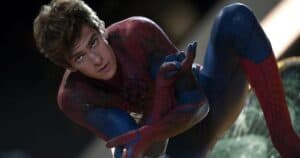
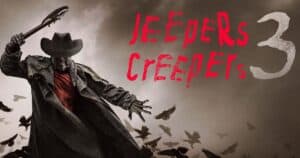
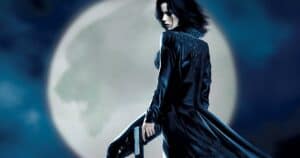
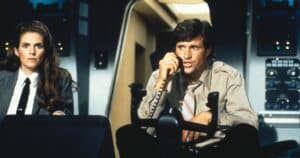

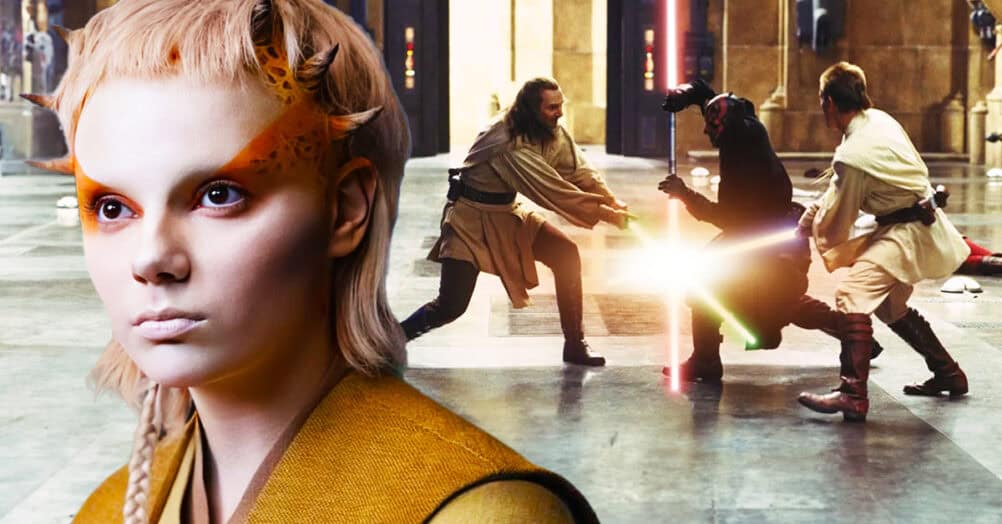
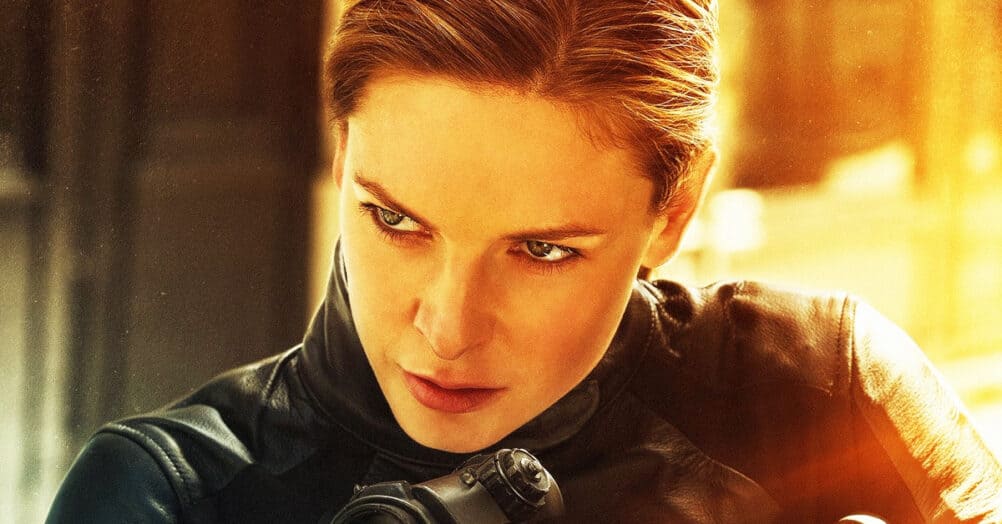
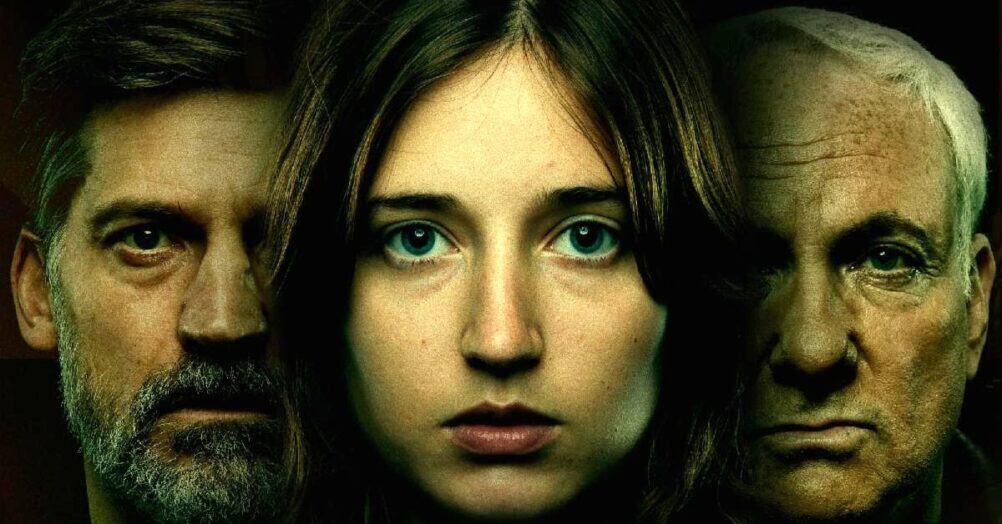
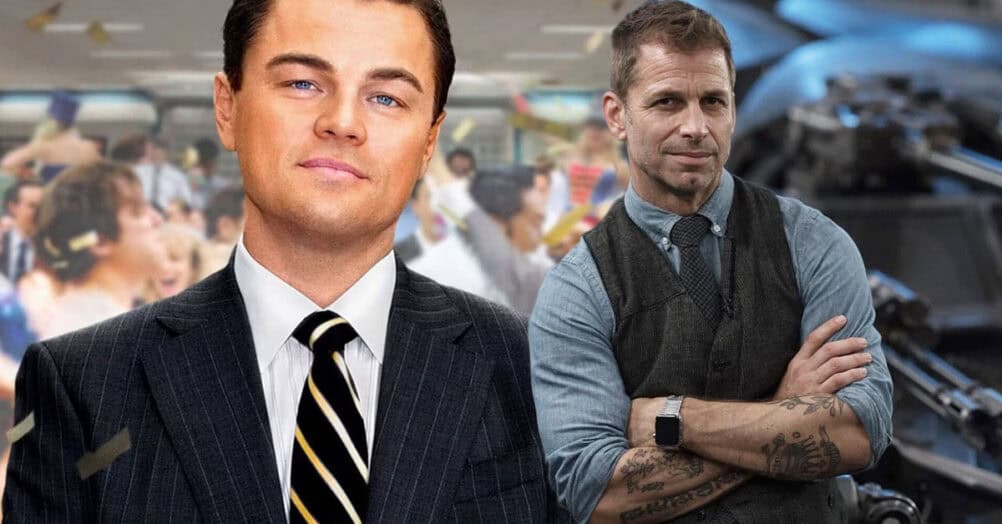

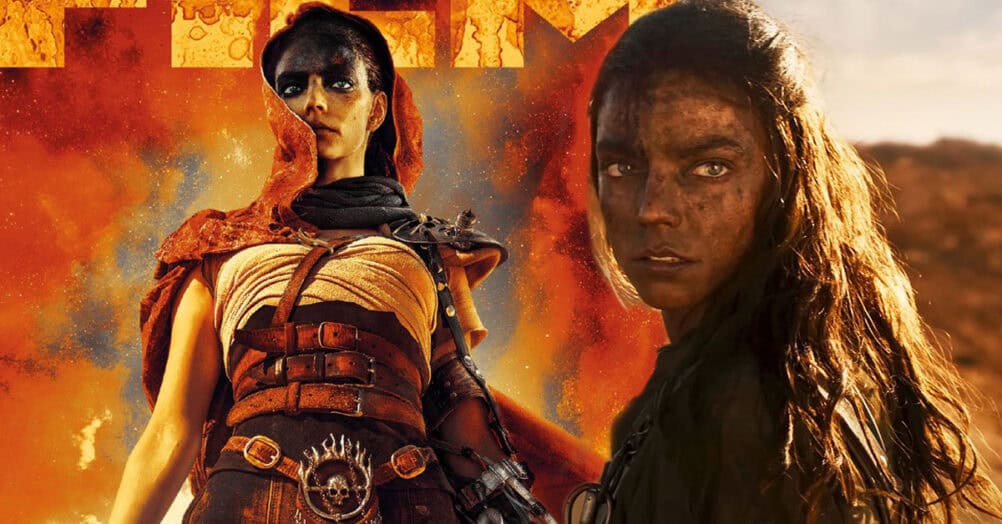

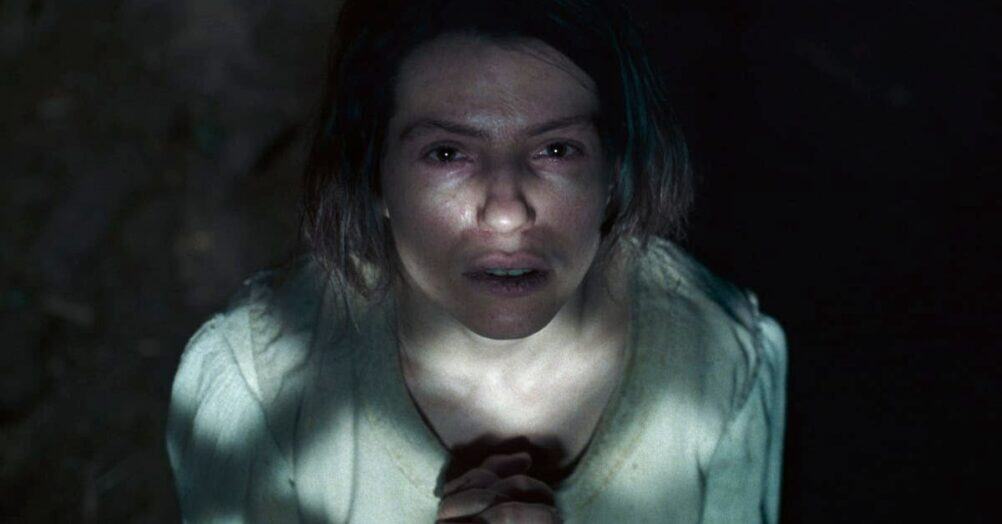
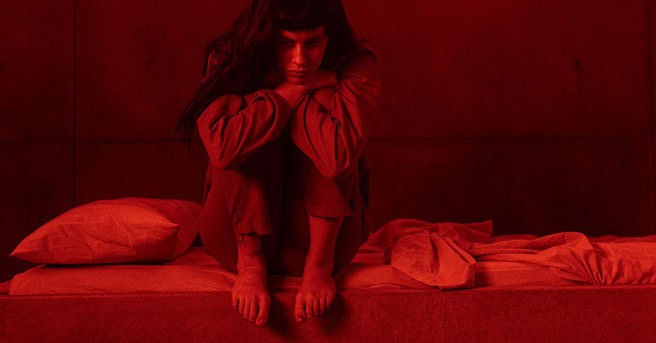
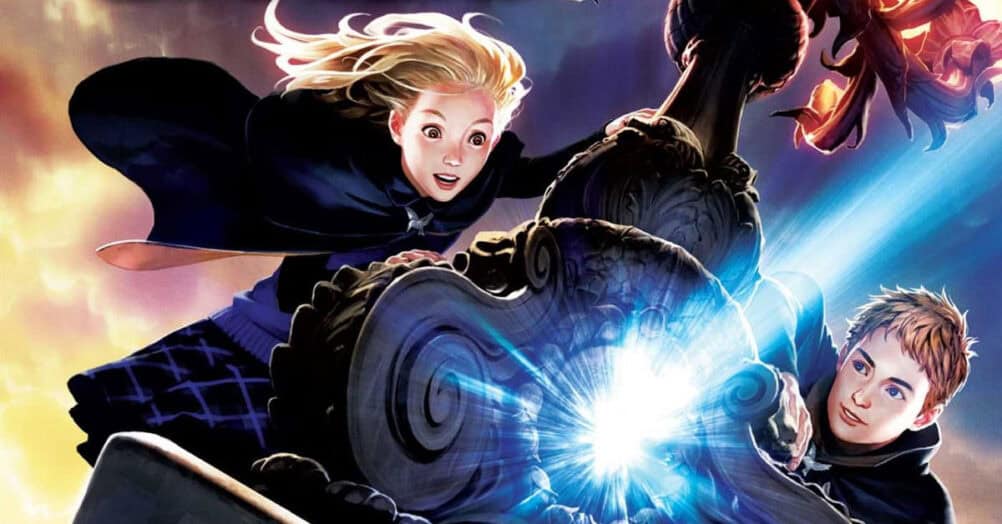
Follow the JOBLO MOVIE NETWORK
Follow us on YOUTUBE
Follow ARROW IN THE HEAD
Follow AITH on YOUTUBE